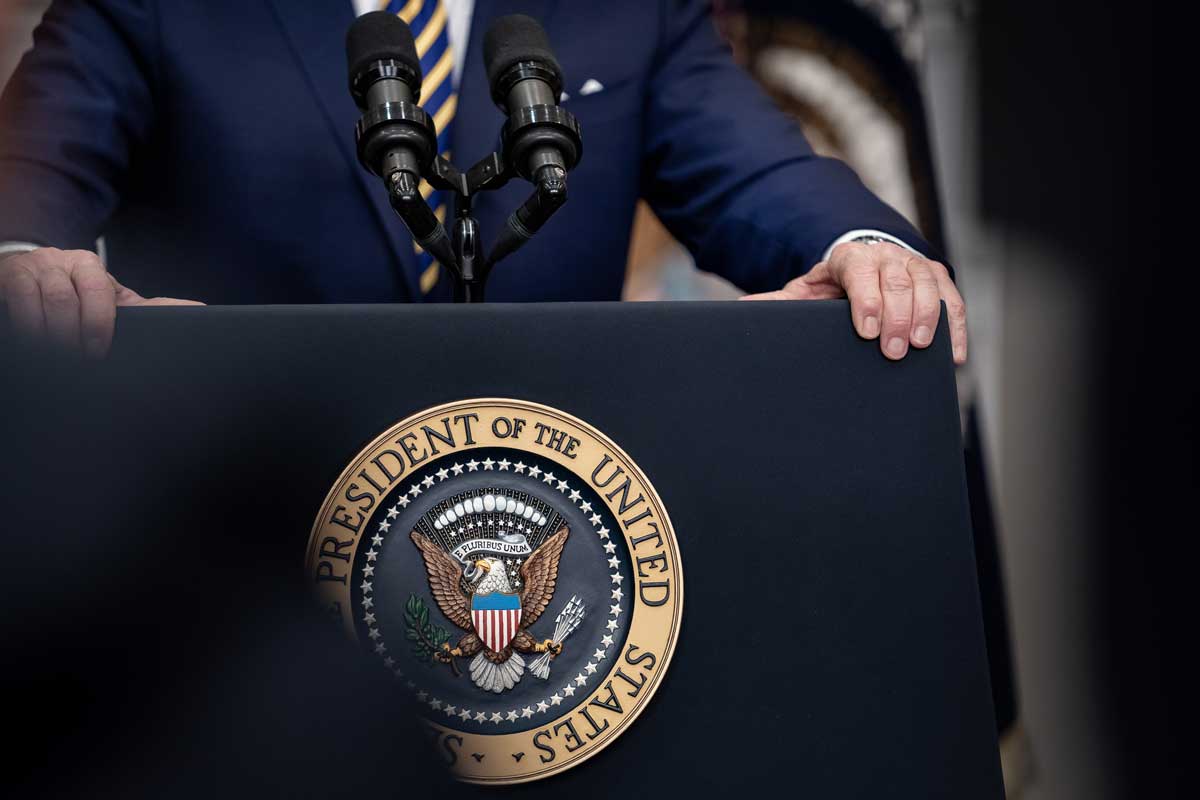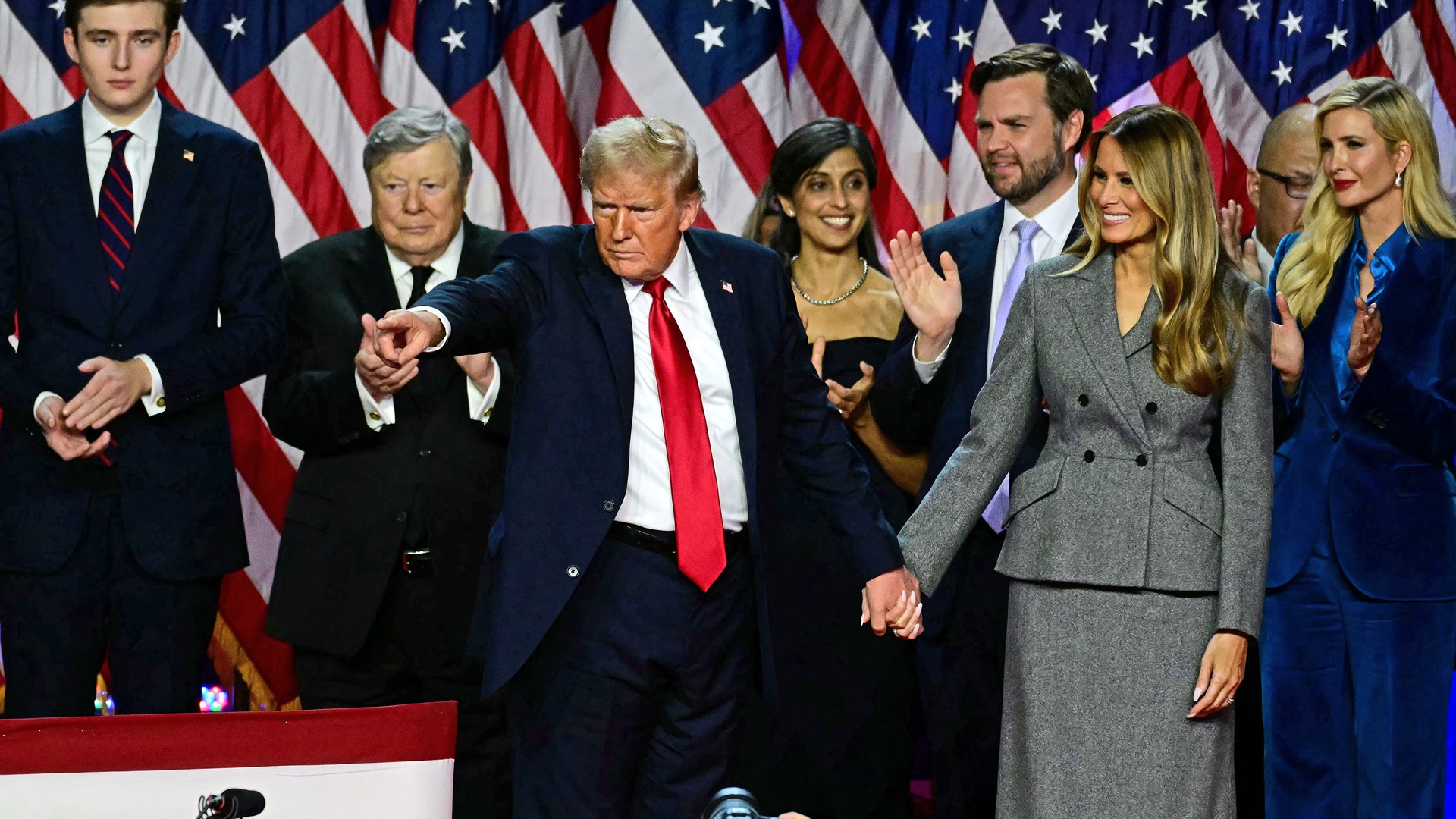













In a remarkable political comeback, Donald Trump was elected as the 47th President of the United States on January 24, 2025, defeating Democratic candidate Kamala Harris. His inauguration took place on January 20, 2025, making him the second U.S. president to serve two non-consecutive terms [c1018e50]. Trump secured 312 electoral votes against Harris's 226, winning all seven key swing states, which marked a significant shift in voter sentiment [123468fe]. This election cycle was characterized by a record number of mail-in ballots, with 65.6 million cast, which had previously favored Biden [4c40c7df].
In his opening days, Trump demonstrated a more organized approach compared to his first term, swiftly removing Biden holdovers and initiating executive orders aimed at increasing oil production to combat inflation and support the economy [4861e9ad]. Notably, on January 20, Trump signed a series of executive orders that Republican politicians, including Congressman Richard Hudson, hailed as heralding a 'Golden Age of America.' Hudson's newsletter claimed this era is marked by mass deportation and energy dominance, reflecting the administration's focus on economic recovery and immigration reform [a6851b63]. Trump's inaugural address also referred to a 'golden age,' a term that some critics have contrasted with historical periods of inequality, drawing parallels to the biblical story of the golden calf and warning against idol worship [a6851b63].
Trump's approval ratings had suffered after the January 6 Capitol riot, which led to his impeachment in December 2019. However, as inflation rose significantly in 2022, many voters began to reassess their priorities, focusing on economic stability and job creation [4c40c7df]. This shift was evident in Trump's campaign, which emphasized economic recovery and immigration reform, resonating with voters who felt left behind by the Democratic Party's focus on cultural issues [3e740f67][84d5c1b1].
The election was not without its challenges for Trump; he survived an assassination attempt on July 13, 2024, which heightened tensions and drew national attention to his campaign [4c40c7df]. Despite facing four indictments in 2023, Trump's resilience and ability to connect with his base proved pivotal in his return to the White House [4c40c7df].
As Trump takes office again, he has laid out a series of ambitious promises, including deporting illegal immigrants, focusing on economic growth, cutting back on climate policies, ending ongoing wars, repealing abortion rights, pardoning Capitol rioters, and firing Special Counsel Jack Smith [c1018e50]. He has also announced a national energy emergency aimed at lowering energy prices and plans to reduce the corporate tax rate from 40% to 15% for domestic manufacturing [5b21a806]. However, he faces significant challenges in fulfilling these promises, especially with a divided Congress and growing public scrutiny.
In his inaugural speech, Trump focused on fear-mongering and culture wars rather than economic relief, raising concerns about his intentions for the country [eb9d424f]. He plans to cut vital programs like healthcare and infrastructure, aiming to slash $2 trillion in government spending by July 2026, which could severely impact education and social services [eb9d424f]. Additionally, he intends to purge 50,000 civil servants, replacing them with political loyalists, which has raised alarms about the politicization of government roles [eb9d424f].
Wall Street is facing challenges with a shaky end to 2024, and market metrics indicate potential for a historic crash. Signs of recession are emerging, including higher unemployment and lower interest rates, alongside anticipated currency and trade wars due to a strong dollar [123468fe]. Analysts are closely watching how Trump's administration will navigate these challenges, especially in light of Biden's perceived failures in international diplomacy [db765132].
The Biden administration is reportedly signing contracts to bind spending before Trump takes office, which may impact his agenda aimed at boosting U.S. energy and manufacturing jobs [123468fe]. Meanwhile, the Democratic Party faces the daunting task of regaining voter trust and addressing the concerns of marginalized communities, particularly as reports of racial tensions have surfaced following the election [495945e5].
In addition to domestic challenges, Trump's second term is expected to have significant implications for international relations, particularly in the Israel-Palestine conflict. His administration is anticipated to appoint pro-Israeli hardliners, including figures like Mike Huckabee and Marco Rubio, who have previously made controversial statements regarding Palestinian identity and rights [f34923e4]. Trump's foreign policy is expected to prioritize U.S. and Israeli interests, potentially disregarding humanitarian concerns, which could deepen regional divides and perpetuate violence in Gaza [f34923e4]. Following the Hamas attacks on October 7, 2023, Trump condemned the attacks and endorsed Israeli military actions, indicating a continuation of policies favoring Israel [f34923e4]. The interplay between economic realities and the political landscape will continue to evolve as both parties adjust to the new dynamics introduced by Trump's comeback [7970553a].
Historically, Trump served as the 45th president from 2017 to 2021, and his return to the presidency marks a significant moment in U.S. political history, following Joe Biden's term as the 46th president [71893dcb]. In his foreign policy, Trump has also criticized NATO allies and taken a hard stance on relations with Pakistan, influenced by the dynamics with China and India [5b21a806]. He has withdrawn from the Paris Climate Change Agreement and the World Health Organization, further raising concerns about his administration's commitment to multilateralism [5b21a806].